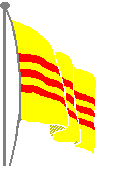Facebook saw roller-coaster action Friday in its first trading day as the social network with some 900 million members made one of the most eagerly awaited market debuts in history.
Facebook shares, priced at $38 on Thursday in the largest-ever initial public offering (IPO) for a technology company, jumped 12 percent to $42.55 in the opening Nasdaq trades but within minutes fell back to the offering price.
At 1825 GMT, the shares were back up 6.0 percent at $40.28.
Investors were expected to be hungry to get a piece of Facebook, which has become a global phenomenon since its beginnings in 2004 as a project of then-Harvard student Mark Zuckerberg and his classmates.
Social network shares tumble as Facebook trades flat
Market pop fades for Facebook
Top reasons to avoid Facebook IPO
Zuckerberg, wearing his trademark hooded sweatshirt, remotely rang the bell to open the Nasdaq, marking the historic share offering that confirms the growing importance of the social network giant.
"Going public is an important milestone in our history," Zuckerberg told the crowd at the company's campus in Menlo Park.
"But here's the thing. Our mission isn't to be a public company. Our mission is to make the world more open and connected."
Gerard Hoberg, a University of Maryland economist, said there was enthusiasm from some buyers who like the company but skepticism from professionals.
"You have a lot of bullishness from retail investors, people who use Facebook, and there's a lot of those investors creating a lot of buying pressure," he said.
"But professionals who were looking at the numbers behind Facebook had a lot more doubts, and that is cooling the issue quite a bit."
A report on the Business Insider financial blog said the price did not fall below $38 because of a large number of standing orders at the offering price. The Wall Street Journal said the underwriting investment banks also stepped in to support the price.
Zuckerberg and hundreds of employees cheered as the 28-year-old co-founder rang the bell via video for the New York-based Nasdaq. He wore a dark hoodie, unfazed by criticism from some on Wall Street about his casual attire. And most of those on hand for the ceremony were wearing similar sweatshirts or T-shirts.
The market debut appeared disappointing compared with some recent tech IPOs: the LinkedIn social network doubled on its first day last year and Groupon jumped 30 percent. But Pandora rose a more modest 8.9 percent and Zynga lost five percent on its first day.
Trip Chowdhry, who follows Facebook for Global Equities Research, said the "lackluster" opening was because Facebook failed to answer questions about how it will increase revenues and adapt to the mobile Internet.
"Management cannot sing and dance around the key issues," he said.
Lou Kerner of the Social Internet Fund said the market action suggests the IPO was correctly priced.
"The company raised a ton of money, lots of early investors, employees, and founders were able to monetize shares, and it's trading up a little, so the new investors did OK," he said.
James Hughes, chief market analyst at London's Alpari, said "the real value of Facebook is not likely to be known until the hype of the IPO has died away and investor have been able to digest how the company is going evolve to be the money-making machine many expect it to be."
Elsewhere in the tech world, shares of online social game maker Zynga plunged as much as 13.3 percent and triggered a temporary trading halt.
The IPO gave Facebook a dizzying value of $104 billion at its market debut.
It raised more than $16 billion, making it the richest after that of financial giant Visa in 2008, according to Renaissance Capital. The addition of a possible stock "over-allotment" could boost the total to $18.4 billion.
Facebook itself sold 180 million shares and early investors in the company the remaining 241 million.
With its current market value, Facebook is now among the most valuable US companies, ahead of sector giants Amazon ($97 billion) and Cisco ($89 billion), and more than twice the value of Ford Motor Co. ($38 billion).
But it remains behind Google ($201 billion) and Apple ($498 billion).
Under the share plan, Zuckerberg will hold 55.8 percent of the voting power of Facebook shares, and over 18 percent of the value of the company.
One of the shadows hanging over Facebook is concerns over privacy.
Some consumer and privacy advocates say Facebook has been too loose with user data, and hope that as a publicly traded company, it may change its tune.
Zuckerberg has repeatedly apologized for privacy lapses amid outrage from users over revelations their online activities were visible to a wide audience of advertisers and other users.
The IPO's net proceeds to Facebook were some $6.8 billion. The rest of the cash goes to Facebook insiders and others who made early investments in the social network, and to cover the IPO costs.
At the heart of the debate about the wisdom of owning a piece of Facebook is how much revenue it takes in.
Revenue vaulted to $1.06 billion in the quarter which ended March 31 -- an improvement year-over-year but down about six percent from the previous quarter.












No comments:
Post a Comment
Thanks for your Comment